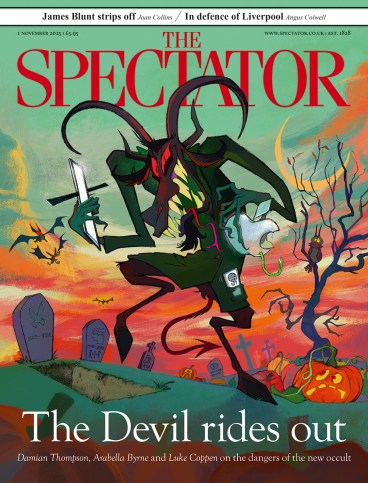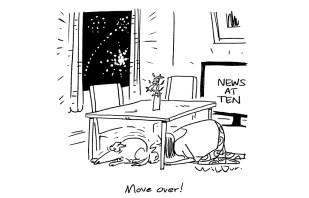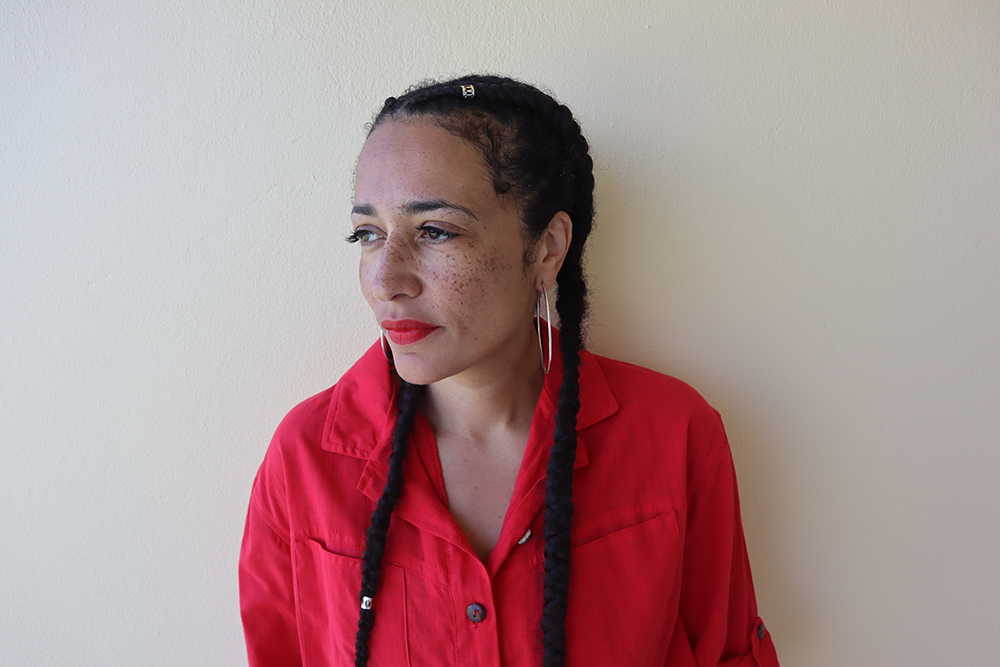
Zadie Smith was born in 1975 in the UK to a Jamaican mother and a British father, and grew up in the ethnically multi-shaded London borough of Brent. Her novels and essays often conjure the polyglot confusion and vibrant streetscapes of Willesden in north-west London where she went to school. Dead and Alive takes us from her beloved Kilburn High Road (Afro-wig emporia, pound shops) to an appreciation of a Stormzy concert at Glastonbury. This fourth essay collection is unfailingly interesting: Smith is uniquely placed to chart the vagaries of life in mixed-up, mixed-race Britain.
Some of the greatest essayists of the 20th century were American. (Only a wordy journal such as the New Yorker could accommodate the long stroll, as perfected by Gore Vidal.) By her own account, Smith is indebted to the work of the Californian whizz journalist Joan Didion; like Didion, she is excited by pretty well anything of human concern, interest and puzzlement. She writes here of Cate Blanchett in the 2022 film Tár (who plays the ‘art monster’ conductor Lydia Tár) in bracingly astringent prose reminiscent of Didion. Stormzy or Little Simz? No cultural artefact is too lowly for Smith’s razor-sharp analysis. In ‘The Realm of the Unspoken’, a bravura performance, she reflects on British patriotism and her support for the England football team. The street-savvy Smith is at pains to flatten the hierarchy between the highbrow and the lowbrow.
She has an old-fashioned faith in the power of the written word. The collection is rife with denunciations of Silicon Valley’s sinister ‘project’ to submit our attention to the 24-hour tyranny of AI and the algorithm. The essay on Lucian Freud’s artist lover Celia Paul, ‘The Muse at Her Easel’, is one of the best I’ve read on muse-artist relations generally. (Smith lets on that she offered herself up to Freud as a model when she was a teenager, ‘being pretty fleshy myself at the time’.) Her meditation on the American painter-silhouettist Kara Walker seems to me exemplary: in lucid pages, Smith defends Walker from accusations of ‘salaciousness’ for her graphic depictions of sexual violence against enslaved Africans in the antebellum South.
Smith is fond of the exclamation mark (‘Talk about Freudian!’) but confines the use of this off-putting and bumptious punctuation to genuine exclamations. She says she dislikes the use of ‘impact’ as a verb – one of the linguistic horrors of recent times (as in ‘her sadness impacted him’). Her essay in defence of fiction, ‘Fascinated to Presume’, exalts clear, accessible prose (‘I believe in a sentence of balance, care, rigour and integrity’). She is winningly level-headed in her views on the US-imported culture wars which have vitiated the life of our universities. She is averse to talk of ‘cultural appropriation’ – the unforgivable crime of writing about people who are not the same as us – and is confessedly triggered by statements such as ‘Chaucer was misogynist’ or ‘Virginia Woolf was a racist’. Woolf and Chaucer may have been those things, but for Smith that is not all that makes them interesting. How ever could it be?
As a mopey 14-year-old,
Smith fell 40 feet out of her
bedroom window in Willesden
One of the best pieces, ‘Martin Amis: England’s Only Living Writer’, is the text of the address Smith read out at Amis’s memorial in London last summer. With a fan’s true admiration she says Amis took the English novel ‘out of the great country houses and Hampstead salons’ and into the ‘bustling vulgarity of Thatcherite Britain’. Her obituary of Philip Roth (also included) is no less affecting. By the time Smith got to know Roth in Manhattan in around 2012 he was no longer writing books. His coffee table was ‘piled high’ instead with histories of American slavery which he was avidly reading. The valedictory talk Smith gave to her New York University students in the midst of the Covid pandemic in 2021 (‘Conscience and Consciousness’) is another high point. James Baldwin is commended for his ‘unhelpful, complicating, self-contradictory, self-hating, perverse and winding sentences’, which ‘pissed off’ everybody in different ways at different times. Smith is attracted to contrarian spirits.

By a long chalk the funniest essay is ‘The Fall’, which considers teenage misery. Smith was a mopey 14-year-old when (in a bid for attention?) she fell 40 feet out of her bedroom window in the family home at Willesden. She landed ‘sitting up’ in the front garden, was lucky not to be paralysed, and had to do her A-levels while on crutches. Less successful are the reflections here on the state of the British nation. In ‘The Realm of the Unspoken’, Smith decries the austerity measures inflicted by George Osborne. The essay feels a bit tired now. Smith is at her best when writing about art and literature; she is good, really good, at that.







Comments